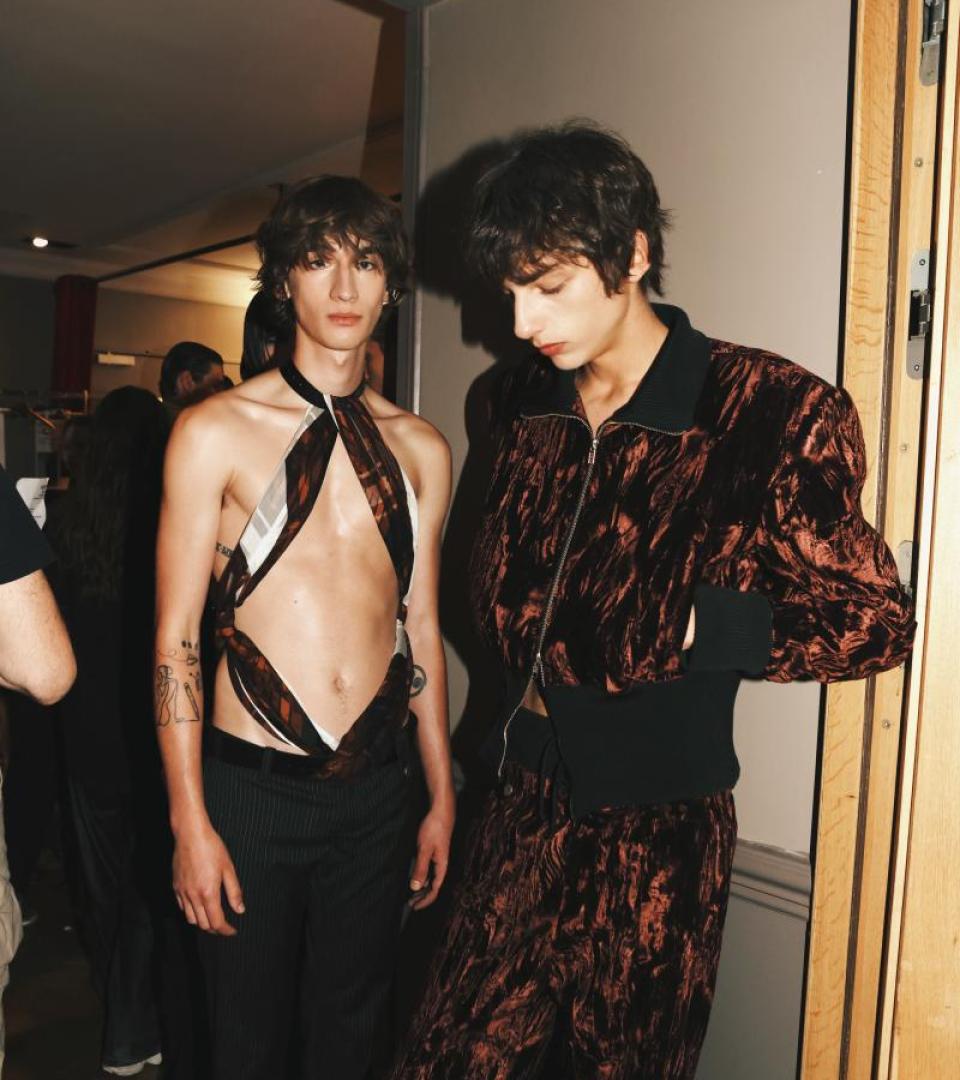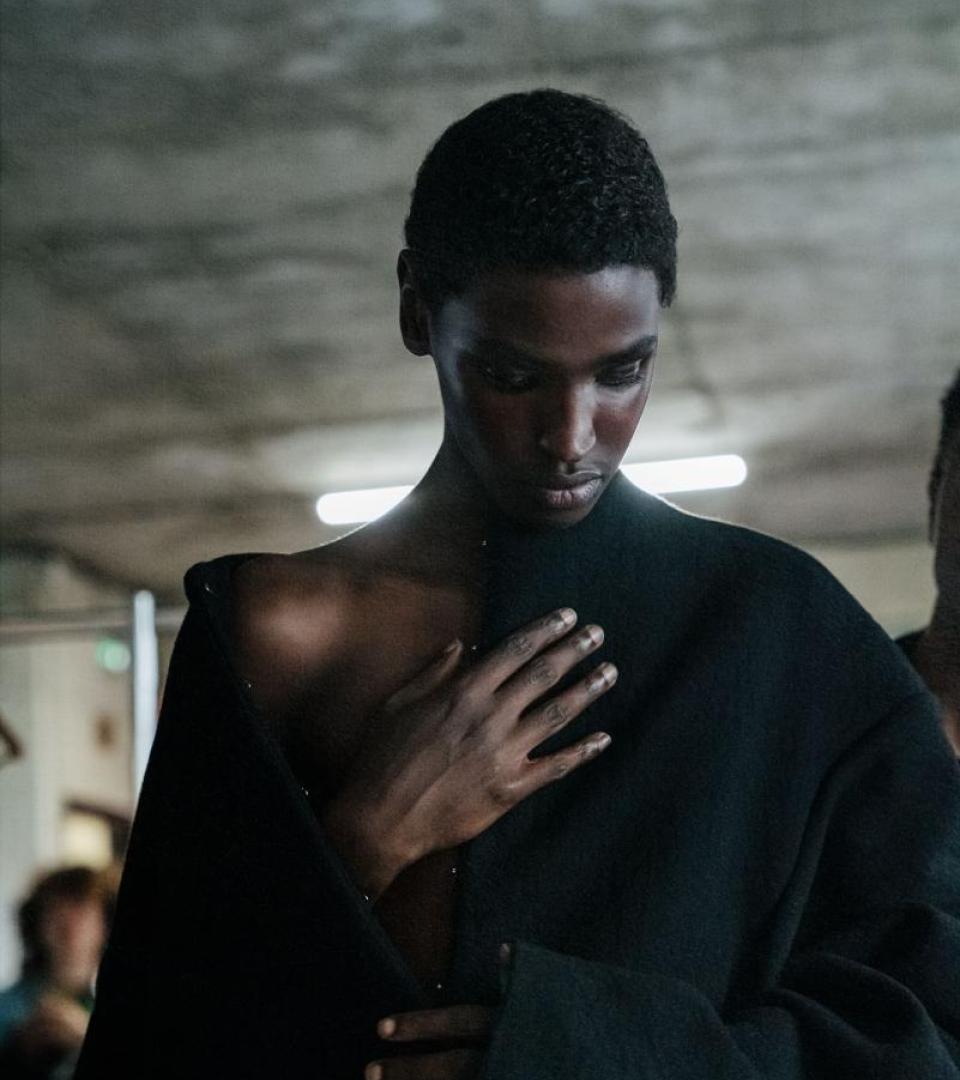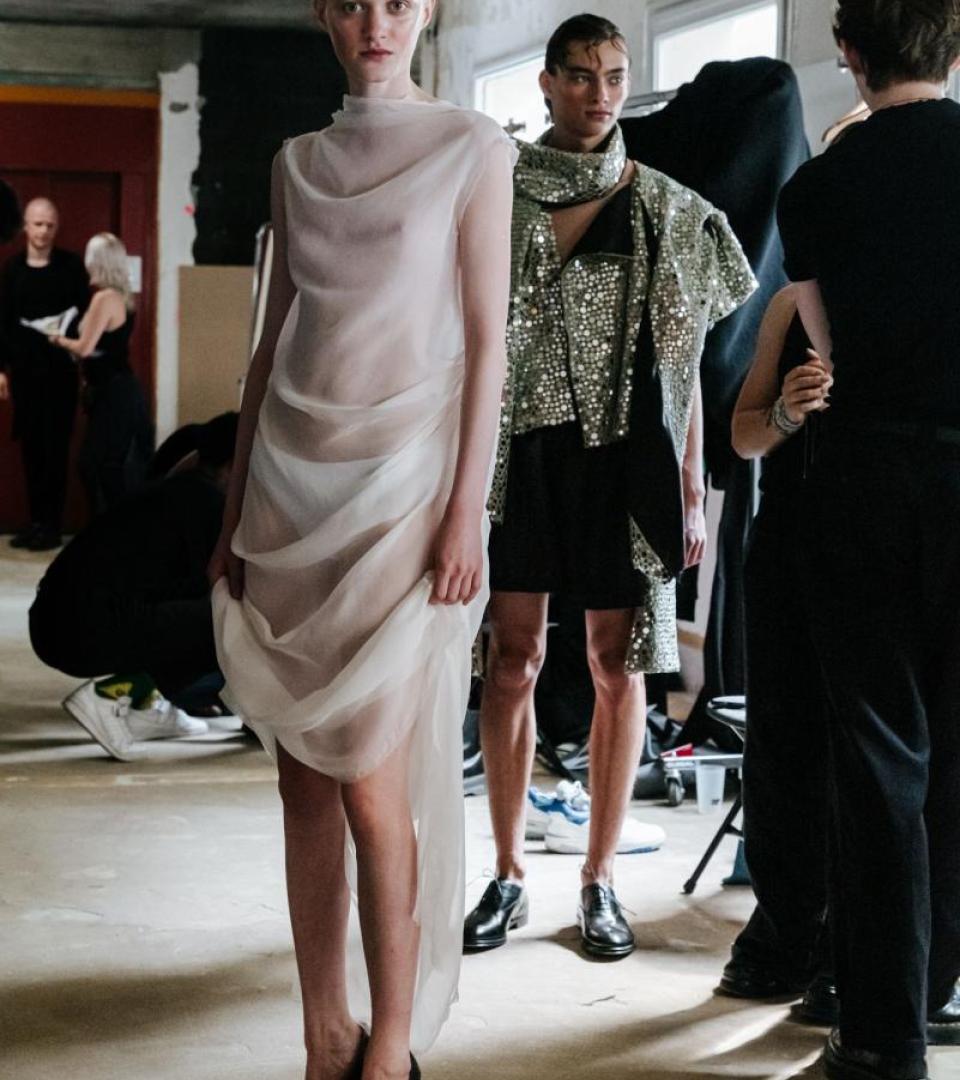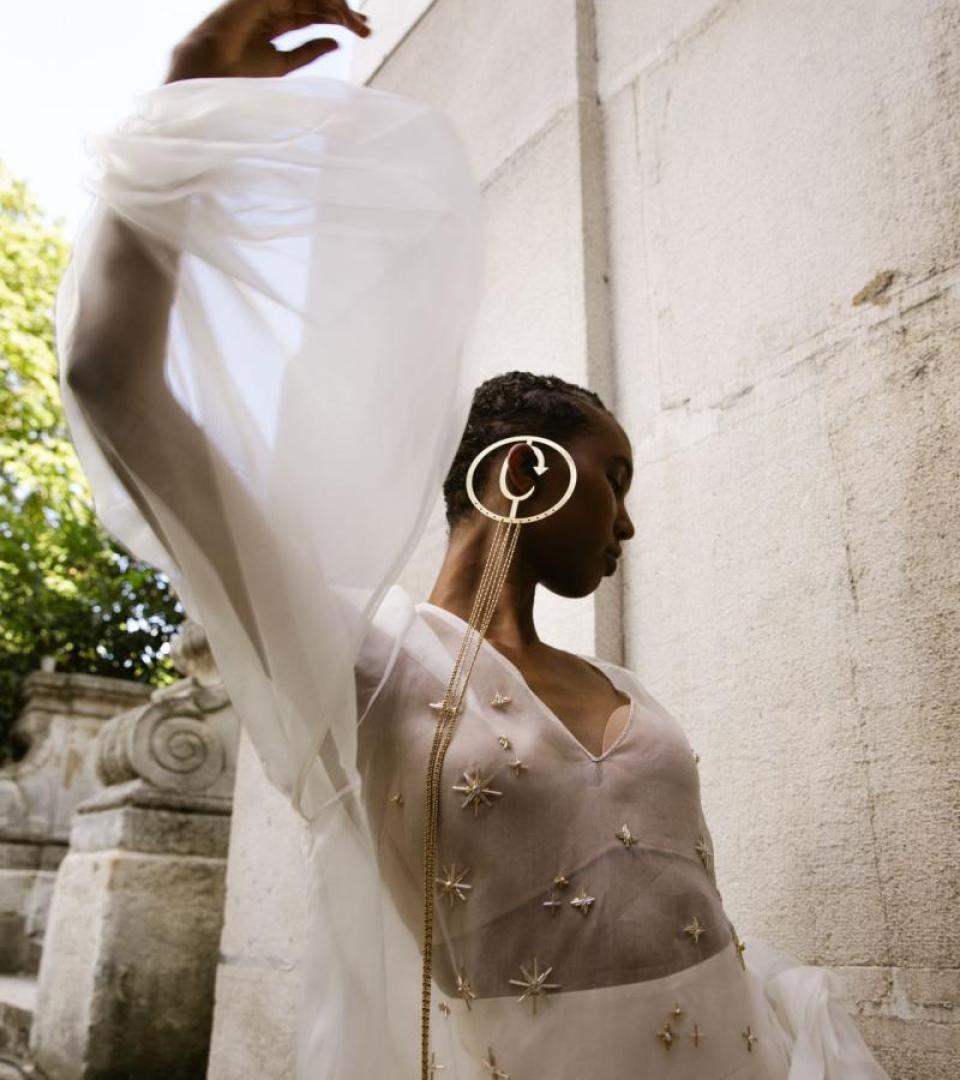They cut flowers into graphic shapes. They balanced the bold patterns with neutral shades and vibrant tones. They brought the natural world into the collection through a collaboration with Debeaulieu, the Parisian florists beloved for their discordant arrangements. Real blooms like dahlias, amaranths, hortensias, and gerberas blossomed from garments in a romantic ode to the natural world. Elsewhere, a collaboration with artists Isabel + Helen, known for their mechanical creations, introduced movement through charming umbrellas, lending a contemporary edge. And let’s not leave out the shoes, a collaboration with KAHRU, which melds Zomer’s spiky creativity with the footwear specialist’s craftsmanship prowess. The interplay of real and fake spanned textures too; there were synthetic fibres like wrinkled neoprene alongside sumptuous silks, wool, and leather supplied by ECCO.
“The collection revolves around the garden of Zomer. It’s quite eclectic and I hope it’s executed quite nicely on the runway,” said Aitouganov, solo via video call.
What would you like us to know about this collection?
In our first collection, we didn’t have any concepts; we wanted to set a foundation without any restrictions or frames so that we could explore any kind of idea. In our second collection, we had a couple of references and ideas around different artists. For the third collection, we were sitting in a garden in Savannah having a beautiful conversation about life and business and we got to thinking about what the Zomer garden would look like. We started researching flowers, their meaning, and the designers who have referenced flowers. We looked at people like Dries van Noten and Comme des Garçons and how they worked with flowers, and we thought about how we could interpret them.
Has Zomer’s identity become clearer to you?
We’re still figuring out what it is that we stand for. We’re developing our signature and this will come with time. We have to keep experimenting in that sense. But we’re starting to get closer to what Zomer is. Even our language on social media: we’ve established a way of doing things. As in, how would a child do this? If we look at a garment or a campaign, we always wonder how a kid would do it. With this in mind, we approach every aspect of the business like that – except the business [laughs].
How does it feel to be part of a legacy like Paris Fashion Week®?
I can’t say anything other than that it’s an honour to be part of something this iconic. Maybe it’s cliché, but Paris is the fashion capital and being part of the calendar between the big names and upcoming brands is so exciting. We’re constantly on the move and we’re always busy but we have to stop ourselves sometimes and celebrate with a glass of champagne.
How has your working relationship developed as joint creative directors?
We’ve known each other for almost 12 years, but this last year is the first time that we’ve worked together. We’ve had to figure out the dynamic from friends to business partners; but the good thing is that I trust him completely, and he trusts me completely. Of course, we have discussions and we’re not always on the same page; but it’s healthy and good for the brand. Together, we can create something unexpected, push each other, and open each other’s eyes. We’re always willing to explore each other’s ideas. If we think they’re good, we execute them in the collection. If they’re not so good, we never take it personally.
This interview has been lightly edited .



